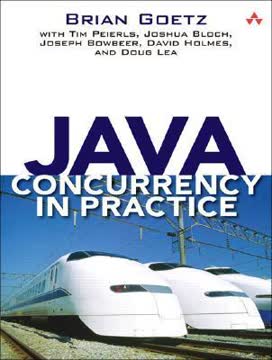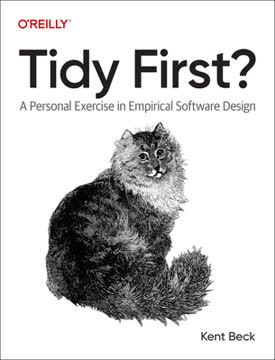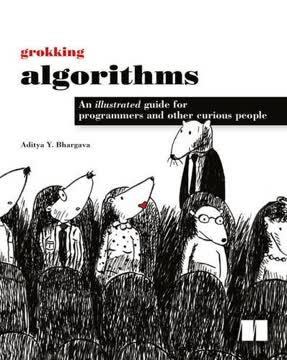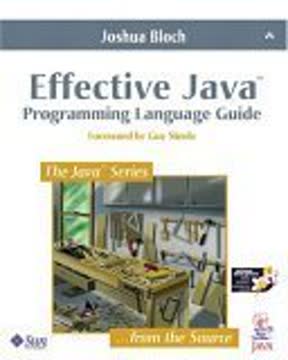Key Takeaways
1. Kotlin simplifies Java development with concise syntax and null safety
"Kotlin doesn't enforce using any particular style or paradigm."
Concise yet readable. Kotlin reduces boilerplate code while maintaining readability. It introduces features like data classes, which automatically generate common methods like equals(), hashCode(), and toString(). This allows developers to express complex ideas with less code, improving productivity and reducing the potential for errors.
Null safety by design. Kotlin's type system distinguishes between nullable and non-nullable types, addressing the infamous "billion-dollar mistake" of null pointer exceptions. By forcing developers to handle null cases explicitly, Kotlin significantly reduces runtime errors and improves overall code reliability. The safe call operator (?.) and the Elvis operator (?:) provide elegant ways to work with potentially null values.
Extension functions. Kotlin allows developers to add new functions to existing classes without modifying their source code. This powerful feature enables the creation of more expressive and intuitive APIs, improving code organization and readability.
2. Functions and lambdas are first-class citizens in Kotlin
"Higher-order functions allow you to make your code more abstract and reusable."
Functional programming support. Kotlin embraces functional programming concepts, treating functions as first-class citizens. This means functions can be assigned to variables, passed as arguments, and returned from other functions. This flexibility enables powerful abstractions and promotes code reuse.
Lambda expressions. Kotlin provides concise syntax for lambda expressions, making it easy to work with collections and write more expressive code. The standard library includes many higher-order functions like map, filter, and reduce, which can be used with lambdas to perform complex operations on collections in a readable and efficient manner.
Function types. Kotlin introduces function types, allowing developers to declare variables and parameters that can hold functions. This feature, combined with lambda expressions, enables the creation of highly flexible and reusable code structures, such as callbacks and strategy patterns.
3. Kotlin's type system enhances safety and expressiveness
"Kotlin has a rich set of features to support functional programming from the get-go."
Smart casts. Kotlin's compiler performs type checks and automatic casts, reducing the need for explicit casting and making code more concise and less error-prone. This feature is particularly useful when working with sealed classes and when expressions.
Generics improvements. Kotlin enhances Java's generics with features like declaration-site variance and type projections. These improvements make it easier to work with generic types and create more flexible APIs.
Inline functions and reified type parameters. Kotlin allows functions to be inlined at the call site, eliminating the overhead of function calls. Combined with reified type parameters, this enables powerful type-safe operations that weren't possible in Java.
4. Object-oriented programming is streamlined in Kotlin
"Kotlin doesn't have a special syntax for creating singleton objects."
Concise class declarations. Kotlin simplifies class declarations by combining the class header and constructor into a single, concise statement. Properties can be declared and initialized directly in the primary constructor, reducing boilerplate code.
Data classes. For classes that primarily hold data, Kotlin provides the data class keyword, which automatically generates useful methods like equals(), hashCode(), and toString(). This feature significantly reduces the amount of code needed to create simple value objects.
Sealed classes. Kotlin introduces sealed classes, which represent restricted class hierarchies. This feature is particularly useful for representing state machines or algebraic data types, enhancing type safety and enabling exhaustive when expressions.
5. Kotlin excels at building domain-specific languages (DSLs)
"Kotlin provides a clean syntax for building type-safe builders."
Type-safe builders. Kotlin's features, such as extension functions and lambdas with receivers, enable the creation of type-safe builders. These builders allow for the construction of complex object structures using a concise and readable DSL-like syntax.
Infix functions. Kotlin allows certain functions to be called using infix notation, omitting the dot and parentheses. This feature can be used to create more natural-looking DSLs, especially for binary operations or fluent APIs.
Operator overloading. Kotlin supports operator overloading, allowing developers to define custom behaviors for standard operators. This feature can be used to create more expressive DSLs and to make domain-specific operations more intuitive.
6. Coroutines simplify asynchronous and concurrent programming
"Coroutines allow you to write asynchronous code in a sequential style."
Lightweight concurrency. Kotlin coroutines provide a way to write asynchronous, non-blocking code in a sequential manner. This approach simplifies concurrent programming, making it easier to reason about and maintain complex asynchronous workflows.
Structured concurrency. Kotlin's coroutine model encourages structured concurrency, where the lifetime of a coroutine is tied to a specific scope. This design helps prevent common concurrency issues like leaks and cancellation problems.
Flow API. Building on coroutines, Kotlin introduces the Flow API for handling streams of asynchronous data. This API provides a functional and composable way to work with asynchronous sequences of values, simplifying tasks like data processing and UI updates.
7. Kotlin enables seamless interoperability with existing Java code
"You can use Kotlin with all existing Java frameworks."
Gradual adoption. Kotlin can be introduced gradually into existing Java projects. Kotlin code can call Java code and vice versa, allowing developers to leverage existing Java libraries and frameworks while taking advantage of Kotlin's features.
Java bytecode compatibility. Kotlin compiles to Java bytecode, ensuring compatibility with all Java platforms, including Android. This compatibility enables Kotlin to be used anywhere Java is used, from server-side applications to Android development.
Enhanced Java APIs. Kotlin's language features, such as extension functions and operator overloading, can be used to create more idiomatic and expressive APIs for existing Java libraries. This allows developers to improve the ergonomics of Java APIs without modifying the original code.
8. Reflection and annotations provide powerful metaprogramming capabilities
"Annotations can have parameters of the following types only: primitive types, strings, enums, class references, other annotation classes and arrays thereof."
Rich annotation support. Kotlin provides comprehensive support for annotations, allowing developers to add metadata to their code. This feature is particularly useful for frameworks that rely on runtime code analysis or generation.
Kotlin reflection API. Kotlin includes a powerful reflection API that allows for runtime introspection of code structures. This API enables developers to write generic algorithms that can work with arbitrary classes and properties.
Compiler plugins. Kotlin's compiler architecture supports plugins, allowing for powerful compile-time code transformations and analysis. This feature enables advanced metaprogramming techniques and custom language extensions.
Formatted Response:
Key Takeaway Headers
- Kotlin simplifies Java development with concise syntax and null safety
- Functions and lambdas are first-class citizens in Kotlin
- Kotlin's type system enhances safety and expressiveness
- Object-oriented programming is streamlined in Kotlin
- Kotlin excels at building domain-specific languages (DSLs)
- Coroutines simplify asynchronous and concurrent programming
- Kotlin enables seamless interoperability with existing Java code
- Reflection and annotations provide powerful metaprogramming capabilities
Key Takeaway Details
1. Kotlin simplifies Java development with concise syntax and null safety
"Kotlin doesn't enforce using any particular style or paradigm."
Concise yet readable. Kotlin reduces boilerplate code while maintaining readability. It introduces features like data classes, which automatically generate common methods like equals(), hashCode(), and toString(). This allows developers to express complex ideas with less code, improving productivity and reducing the potential for errors.
Null safety by design. Kotlin's type system distinguishes between nullable and non-nullable types, addressing the infamous "billion-dollar mistake" of null pointer exceptions. By forcing developers to handle null cases explicitly, Kotlin significantly reduces runtime errors and improves overall code reliability. The safe call operator (?.) and the Elvis operator (?:) provide elegant ways to work with potentially null values.
Extension functions. Kotlin allows developers to add new functions to existing classes without modifying their source code. This powerful feature enables the creation of more expressive and intuitive APIs, improving code organization and readability.
2. Functions and lambdas are first-class citizens in Kotlin
"Higher-order functions allow you to make your code more abstract and reusable."
Functional programming support. Kotlin embraces functional programming concepts, treating functions as first-class citizens. This means functions can be assigned to variables, passed as arguments, and returned from other functions. This flexibility enables powerful abstractions and promotes code reuse.
Lambda expressions. Kotlin provides concise syntax for lambda expressions, making it easy to work with collections and write more expressive code. The standard library includes many higher-order functions like map, filter, and reduce, which can be used with lambdas to perform complex operations on collections in a readable and efficient manner.
Function types. Kotlin introduces function types, allowing developers to declare variables and parameters that can hold functions. This feature, combined with lambda expressions, enables the creation of highly flexible and reusable code structures, such as callbacks and strategy patterns.
3. Kotlin's type system enhances safety and expressiveness
"Kotlin has a rich set of features to support functional programming from the get-go."
Smart casts. Kotlin's compiler performs type checks and automatic casts, reducing the need for explicit casting and making code more concise and less error-prone. This feature is particularly useful when working with sealed classes and when expressions.
Generics improvements. Kotlin enhances Java's generics with features like declaration-site variance and type projections. These improvements make it easier to work with generic types and create more flexible APIs.
Inline functions and reified type parameters. Kotlin allows functions to be inlined at the call site, eliminating the overhead of function calls. Combined with reified type parameters, this enables powerful type-safe operations that weren't possible in Java.
4. Object-oriented programming is streamlined in Kotlin
"Kotlin doesn't have a special syntax for creating singleton objects."
Concise class declarations. Kotlin simplifies class declarations by combining the class header and constructor into a single, concise statement. Properties can be declared and initialized directly in the primary constructor, reducing boilerplate code.
Data classes. For classes that primarily hold data, Kotlin provides the data class keyword, which automatically generates useful methods like equals(), hashCode(), and toString(). This feature significantly reduces the amount of code needed to create simple value objects.
Sealed classes. Kotlin introduces sealed classes, which represent restricted class hierarchies. This feature is particularly useful for representing state machines or algebraic data types, enhancing type safety and enabling exhaustive when expressions.
5. Kotlin excels at building domain-specific languages (DSLs)
"Kotlin provides a clean syntax for building type-safe builders."
Type-safe builders. Kotlin's features, such as extension functions and lambdas with receivers, enable the creation of type-safe builders. These builders allow for the construction of complex object structures using a concise and readable DSL-like syntax.
Infix functions. Kotlin allows certain functions to be called using infix notation, omitting the dot and parentheses. This feature can be used to create more natural-looking DSLs, especially for binary operations or fluent APIs.
Operator overloading. Kotlin supports operator overloading, allowing developers to define custom behaviors for standard operators. This feature can be used to create more expressive DSLs and to make domain-specific operations more intuitive.
6. Coroutines simplify asynchronous and concurrent programming
"Coroutines allow you to write asynchronous code in a sequential style."
Lightweight concurrency. Kotlin coroutines provide a way to write asynchronous, non-blocking code in a sequential manner. This approach simplifies concurrent programming, making it easier to reason about and maintain complex asynchronous workflows.
Structured concurrency. Kotlin's coroutine model encourages structured concurrency, where the lifetime of a coroutine is tied to a specific scope. This design helps prevent common concurrency issues like leaks and cancellation problems.
Flow API. Building on coroutines, Kotlin introduces the Flow API for handling streams of asynchronous data. This API
Last updated:
FAQ
What's Kotlin in Action about?
- Comprehensive Guide: Kotlin in Action is a detailed guide to the Kotlin programming language, covering its features, syntax, and best practices.
- Three-Part Structure: The book is divided into three parts, focusing on basic syntax, building reusable abstractions, and applying Kotlin in real-world projects.
- Authoritative Insights: Written by Dmitry Jemerov and Svetlana Isakova, the book provides authoritative information and practical examples to help readers become proficient in Kotlin.
Why should I read Kotlin in Action?
- Practical Approach: The book emphasizes practical applications of Kotlin, making it suitable for developers looking to implement Kotlin in their projects quickly.
- Interoperability with Java: It thoroughly covers Kotlin's interoperability with Java, making it an excellent resource for Java developers transitioning to Kotlin.
- Expert Insights: Written by experienced Kotlin developers, the book offers expert insights and practical advice, enhancing understanding of Kotlin's design decisions.
What are the key takeaways of Kotlin in Action?
- Kotlin's Features: Readers will learn about Kotlin's concise syntax, null safety, and powerful type system, which help reduce common programming errors.
- Functional Programming: The book introduces functional programming concepts in Kotlin, such as higher-order functions and lambdas, for more expressive code.
- Real-World Applications: It provides practical insights into applying Kotlin in various contexts, including Android development and server-side applications.
What are the best quotes from Kotlin in Action and what do they mean?
- "Kotlin is pragmatic, safe, concise, and interoperable.": This quote summarizes Kotlin's core philosophy, emphasizing its practical applications and seamless integration with Java.
- "Null safety is one of the key features of Kotlin.": This statement underscores Kotlin's focus on preventing null pointer exceptions, enhancing code reliability.
- "Kotlin encourages a functional programming style.": This quote highlights Kotlin's support for functional programming, promoting cleaner and more maintainable code.
How does Kotlin in Action explain Kotlin's approach to null safety?
- Nullable Types: Kotlin distinguishes between nullable and non-nullable types, helping prevent NullPointerExceptions at compile time.
- Safe Call Operator: The
?.operator allows method calls on nullable types without risking null reference exceptions. - Elvis Operator: The
?:operator provides a default value if a nullable expression evaluates to null, leading to cleaner code.
How does Kotlin in Action describe Kotlin's handling of collections?
- Unified Collection Types: Kotlin does not differentiate between primitive and reference types, allowing for a consistent approach to collections.
- Extension Functions: Kotlin extends Java's collection classes with functions like
filter,map, andflatMap, simplifying operations on collections. - Lazy Evaluation with Sequences: Sequences allow for lazy evaluation of collection operations, improving performance by avoiding intermediate collections.
What are lambdas and how are they used in Kotlin according to Kotlin in Action?
- Definition of Lambdas: Lambdas are anonymous functions that can be passed as parameters, allowing for concise and expressive code.
- Lambda Syntax: In Kotlin, lambdas are defined using curly braces
{}and can access variables from their surrounding scope. - Member References: Kotlin allows for member references using the
::operator, providing a shorthand for passing functions.
How does Kotlin in Action explain Kotlin's type system improvements?
- Explicit Nullability: Kotlin's type system requires explicit declaration of nullability, reducing runtime null reference errors.
- Smart Casts: The compiler automatically casts types after a type check, allowing for cleaner and safer code.
- Sealed Classes: Sealed classes restrict class hierarchies, ensuring exhaustive checks in
whenexpressions, enhancing code safety.
What are data classes in Kotlin as explained in Kotlin in Action?
- Purpose of Data Classes: Data classes are designed to hold data and automatically generate common methods like
equals(),hashCode(), andtoString(). - Primary Constructor: A data class must have a primary constructor with at least one parameter, defining the class properties.
- Copy Method: Data classes provide a
copy()method for creating new instances with modified properties, maintaining immutability.
How does Kotlin in Action describe class delegation in Kotlin?
- Class Delegation: Kotlin allows class delegation using the
bykeyword, simplifying interface implementation without boilerplate code. - Avoiding Boilerplate: Delegation avoids repetitive code for methods that forward calls to another object, leading to cleaner code.
- Custom Behavior: Specific methods can be overridden to add custom behavior while still delegating the rest of the implementation.
What are companion objects in Kotlin according to Kotlin in Action?
- Definition of Companion Objects: Companion objects are special objects within a class that hold static-like members and methods.
- Accessing Companion Members: Members of a companion object can be accessed using the class name, similar to static members in Java.
- Implementing Interfaces: Companion objects can implement interfaces, allowing for consistent instance creation or operations related to the class.
How does Kotlin in Action explain higher-order functions in Kotlin?
- Functions as First-Class Citizens: Higher-order functions can take other functions as parameters or return them, allowing for flexible code structures.
- Lambda Expressions: Kotlin supports lambda expressions, enabling functional programming paradigms within the language.
- Practical Applications: Higher-order functions are used in collection operations like
map,filter, andreduce, allowing for expressive code.
Review Summary
Kotlin in Action receives mostly positive reviews, with readers praising its comprehensive coverage of Kotlin features, clear explanations, and comparison to Java. Many find it excellent for experienced programmers transitioning from Java to Kotlin. Highlights include the chapters on generics, DSLs, and lambdas. Some readers note the book's density and occasional complexity, especially in later chapters. A few criticize its treatment of Java, while others appreciate the insights into Kotlin's design decisions. Overall, it's highly recommended for those with programming experience looking to learn Kotlin.
Similar Books










Download PDF
Download EPUB
.epub digital book format is ideal for reading ebooks on phones, tablets, and e-readers.




